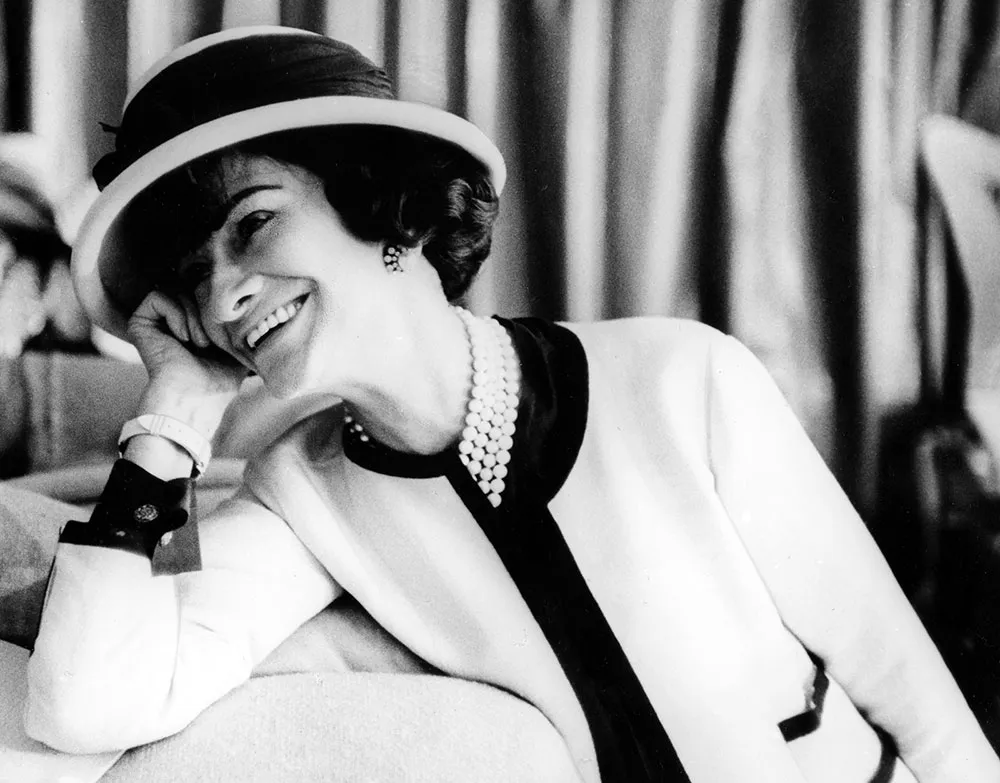Coco Chanel, the legendary French fashion designer, remains an everlasting icon in the world of haute couture. Her indelible impact on the fashion industry extends far beyond her lifetime, as her revolutionary designs and innovative ideas continue to influence modern fashion trends. From pioneering women’s liberation through her style to creating timeless pieces that remain wardrobe staples to this day, Chanel’s legacy is an inspiration for designers, fashion enthusiasts, and empowered women across the globe.
Early Life and Rise to Fame:
Born Gabrielle Bonheur Chanel on August 19, 1883, in Saumur, France, Coco Chanel had a modest upbringing. Orphaned at an early age, she spent her formative years in a convent where she learned the art of sewing and needlework. It was during this time that her passion for fashion and design began to flourish.
In her early twenties, Chanel started her career as a cabaret singer and acquired the nickname “Coco.” Soon after, she moved to Paris and embarked on a journey that would change the face of fashion forever. Chanel’s foray into the fashion world began with designing hats, catching the attention of high-society clientele and influential figures.
Revolutionizing Women’s Fashion:
In the early 20th century, women’s fashion was characterized by restrictive corsets and opulent embellishments. However, Chanel had a vision of simplicity and comfort, which defied the conventions of the time. She introduced loose-fitting clothes with clean lines and a focus on functionality, which allowed women to move freely and comfortably.
One of her most iconic creations was the little black dress (LBD). Introduced in the 1920s, the LBD became a symbol of sophistication and elegance, revolutionizing evening wear for women. Chanel famously said, “Fashion fades, only style remains the same,” highlighting her commitment to creating enduring and versatile designs.
The Chanel Suit:
Another groundbreaking creation by Coco Chanel was the Chanel suit, a timeless two-piece ensemble characterized by its boxy jacket with a gold-chain trim and a slim skirt. Launched in the 1950s, the Chanel suit became a symbol of femininity and power, redefining the concept of women’s work attire. Its popularity among fashion-conscious women and prominent figures, such as Jacqueline Kennedy, further cemented its status as a fashion staple.
Chanel No. 5:
In 1921, Chanel unveiled her first fragrance, Chanel No. 5, named after its experimental fifth formulation. This fragrance, crafted by the renowned perfumer Ernest Beaux, broke away from traditional floral scents and embraced a unique blend of aldehydes, florals, and musk. Chanel No. 5 became an instant hit and is still celebrated as one of the most iconic and best-selling perfumes of all time.
Legacy and Impact:
Coco Chanel’s impact on the fashion industry goes beyond her design innovations. She shattered gender norms and societal expectations by embracing menswear-inspired styles and liberating women from the constraints of corsets and elaborate fashion. Chanel’s emphasis on comfort, elegance, and timeless appeal has continued to inspire designers and fashion houses worldwide.
Even after her passing in 1971, the House of Chanel remains a formidable force in the fashion world. Under the direction of Karl Lagerfeld and now Virginie Viard, the brand continues to reinvent and reinterpret Chanel’s classic designs while staying true to her original vision.
Conclusion:
Coco Chanel’s influence on the world of haute couture is immeasurable. From liberating women through her progressive designs to creating enduring pieces that transcend time, she remains an eternal inspiration for designers and fashion enthusiasts alike. Her legacy serves as a reminder that true style is not confined to fleeting trends but is rooted in innovation, authenticity, and fearlessness. Coco Chanel’s pioneering spirit and timeless designs continue to captivate the fashion world, ensuring her place as an everlasting icon in the history of fashion.








